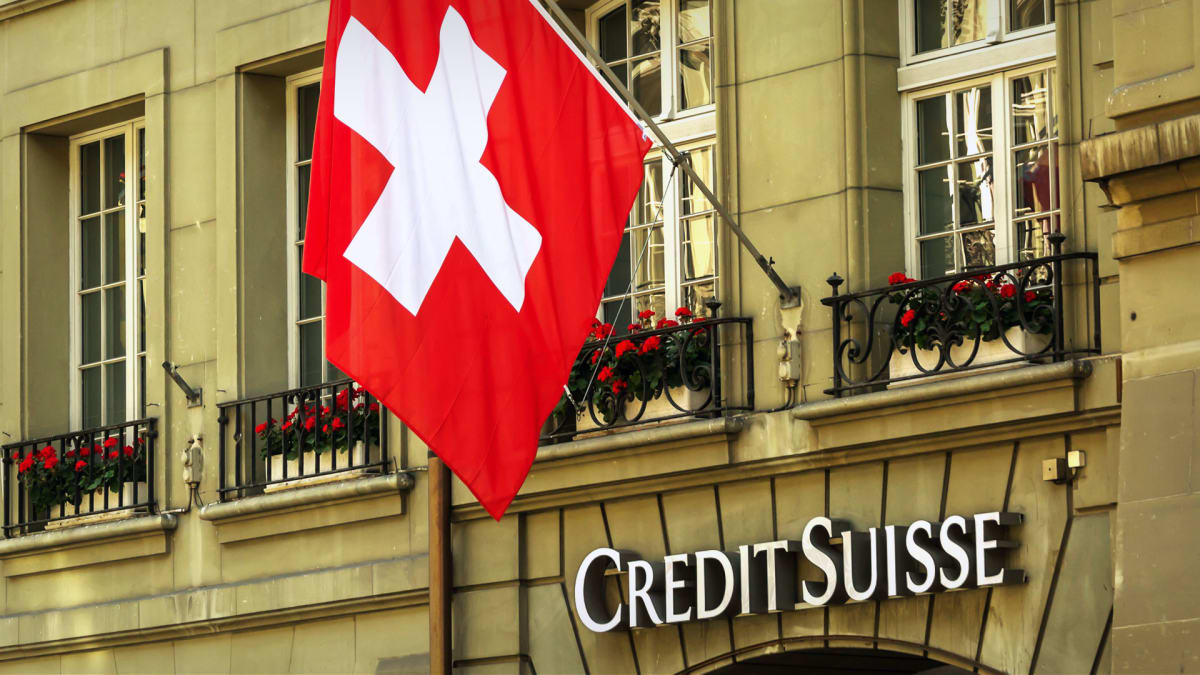
If all goes as planned, Credit Suisse will be absorbed into UBS, ending a 167-year history.
The Swiss bank was for decades one of the flagships of European finance and a source of pride for Switzerland.
Credit Suisse gets credit for having been one of the few banks that withstood the financial crisis of 2008, which almost brought down the global financial system.
The question is what happens next, assuming regulators worldwide approve the marriage with UBS, which the Swiss authorities forced in an effort to restore confidence in the local banking system and beyond.
Credit Suisse offered both retail-banking and investment-banking services. The firm also managed large fortunes through its wealth- and asset-management divisions.
History will remember that it was the crisis of confidence in banks, caused by the sudden collapse of Silicon Valley Bank on March 10, that brought down Credit Suisse.
Yet, SVB and Credit Suisse had different profiles. Credit Suisse was also more strictly monitored by regulators than SVB was.
SVB's failure prompted anxiety about the banking sector, to the point where investors were shaken by any negative signal concerning a bank. The concern worsened when the target was a bank that was considered fragile long before this crisis hit.
This is what happened to Credit Suisse.
The bank had been rocked by several scandals before its takeover; it was trying to revive itself by executing a turnaround plan unveiled last October.
But March 15 remarks from Ammar Al Khudairy, the chairman of Saudi National Bank, Credit Suisse's largest shareholder, reignited investor fears and sparked a bank run by wealthy clients.
This prompted the Swiss authorities to decide that the only way to avoid contagion was to merge Credit Suisse and UBS at all costs, despite resistance from UBS.
Here is a transcript of the short video that further fueled the fire. The interview was given to Bloomberg TV.
Question: I'm wondering whether you will be open to assisting further if there was another call for additional liquidity from Credit Suisse?
Ammar Al Khudairy: The answer is absolutely not, for many reasons. Outside the simplest reason, which is regulatory and statute, we now own 9.8% of the bank. If we go above 10%, all kinds of new rules kick in, whether it be by our regulator or the European regulator, or the Swiss regulator, and we're not inclined to get into a new regulatory regime. So I can say five, six other reasons.
But one reason which is, you know, that there is a glass ceiling. We do not intend to entertain going beyond it, and we're there now.
Question: I'm wondering whether any conversations have taken place about other turnaround options; maybe some new radical ideas are needed to help revive confidence in Credit Suisse. What is your thinking there?
Ammar Al Khudairy: That's -- you're better off asking Credit Suisse. We're, you know, we don't have a board seat. We're an investor. And so, we don't engage with them in discussions that, you know, that kind of cross-fences us.
Question: So the the franchise Credit Suisse First Boston, that's also not an option. Not something you would invest in?
Ammar Al Khudairy: We are not looking at it. Yeah, no, we are not looking at it.
Investors heard these words as either a lack of confidence in Credit Suisse or a probable sign that things were not going well. The bank reportedly recorded outflows of about $10 billion in one day after this interview aired.
Al Khudairy's words very likely accelerated a stock and bond collapse for Credit Suisse. The Swiss authorities felt they had to intervene.
Credit Suisse had already been facing outflows since last October.
With the acquisition by UBS, Credit Suisse investors and creditors have lost almost everything. They include Saudi National Bank, which is 37%-owned by the sovereign wealth fund of Saudi Arabia.
Saudi National Bank last year had acquired a 9.8% stake in Credit Suisse with an investment of 1.4 billion Swiss francs, currently about US$1.52 billion.
A few days after the UBS-Credit Suisse deal, Al Khudairy resigned. In fairness, he had said last year that an increase in the bank's stake in CS was "out of the question."
This time, his words were badly chosen.







